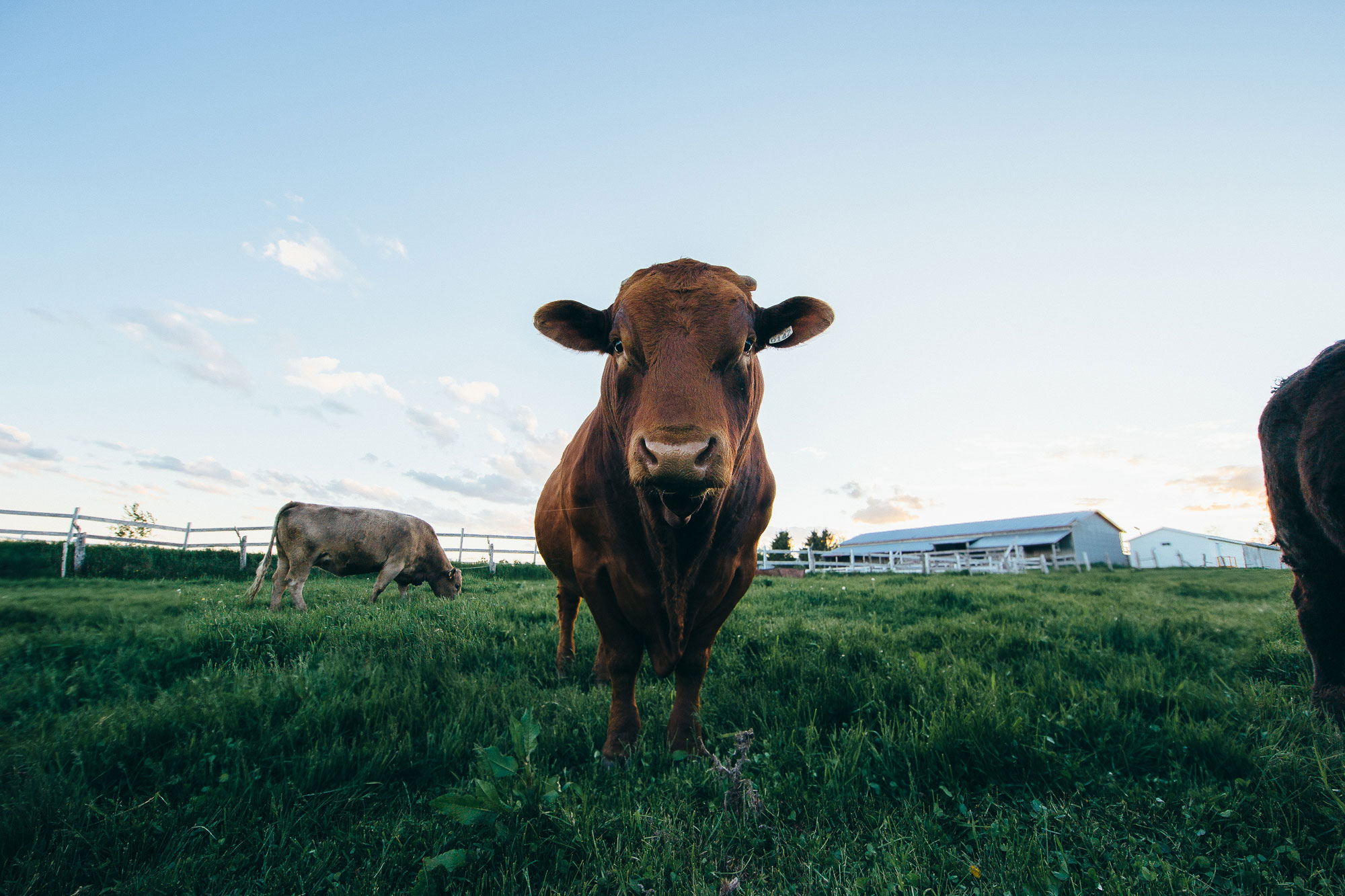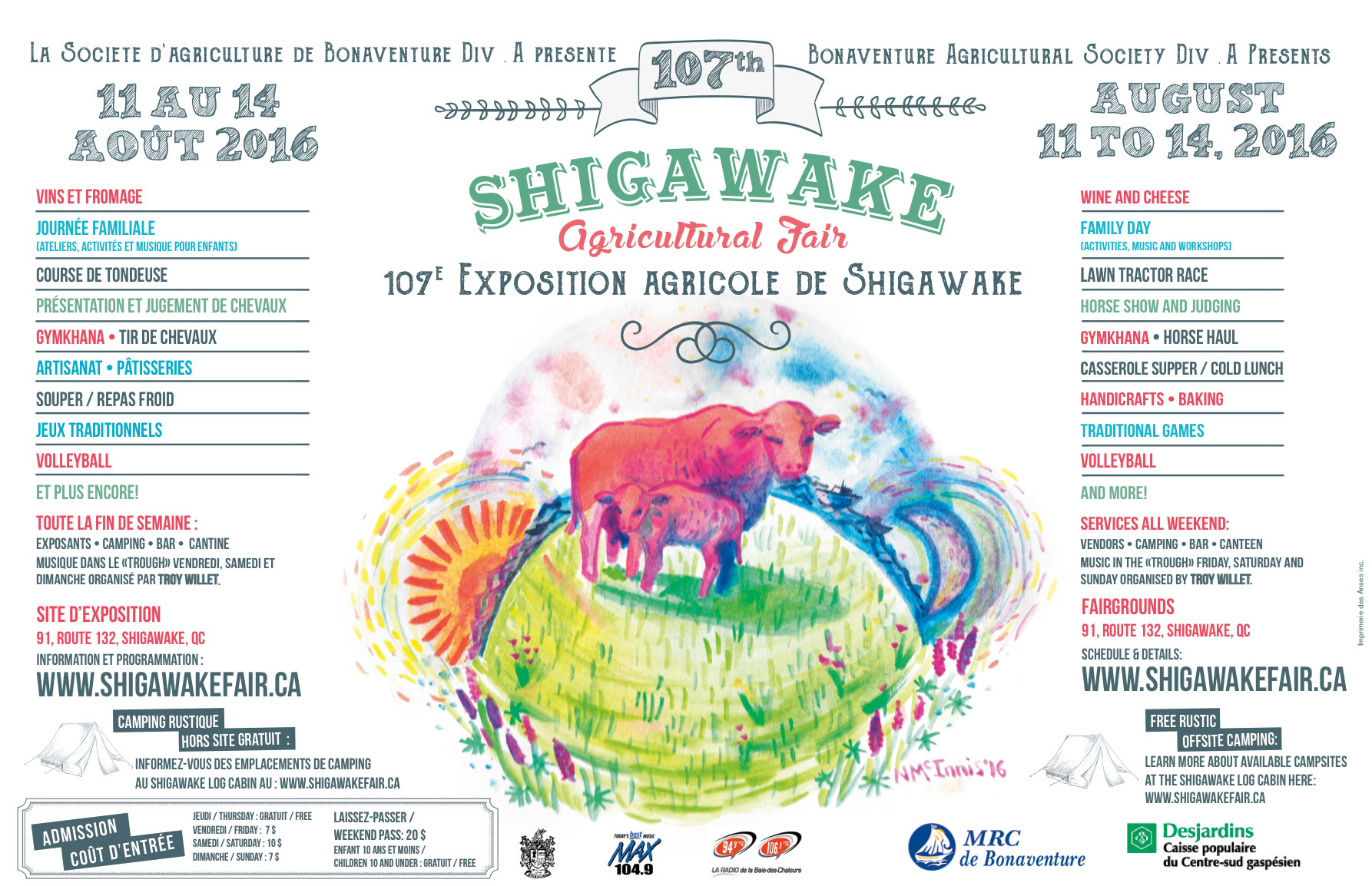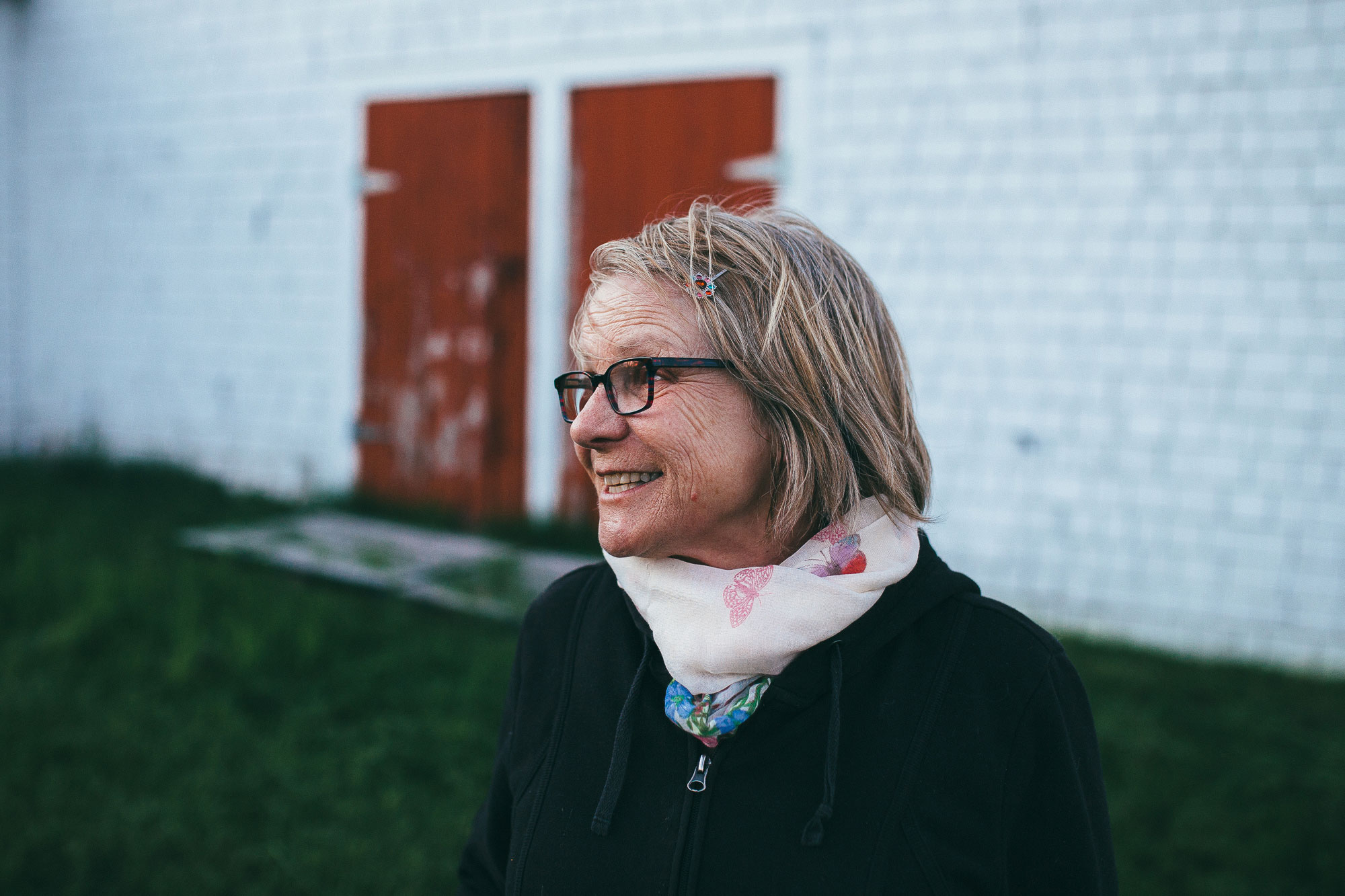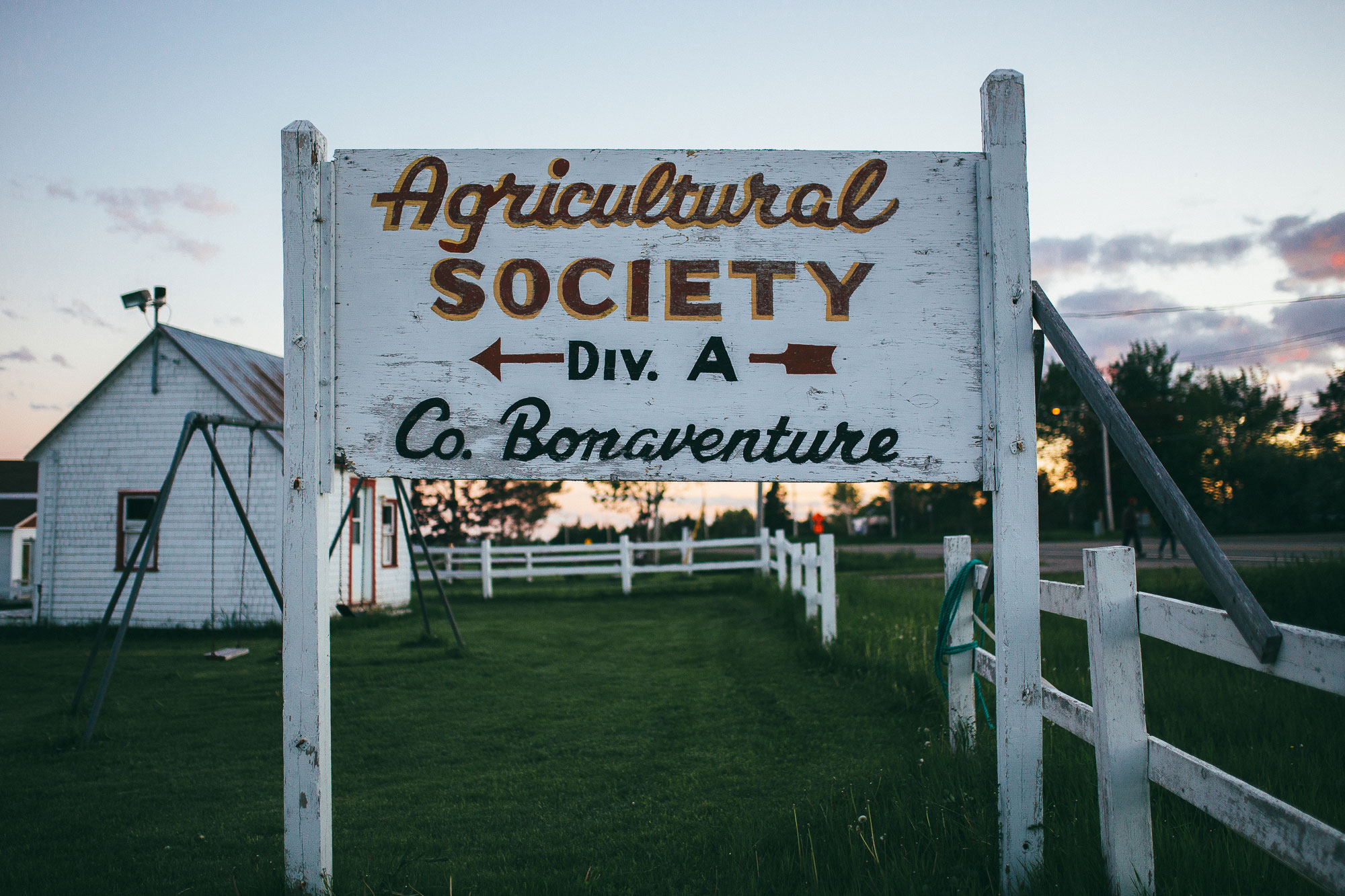360 days of the year, the fairgrounds in Shigawake are ruled by cattle. Asad and I were shown around Nikki and George Hayes’ farm, and the tour ended across the highway, towards the ocean. The fairgrounds.
The Shigawake Agricultural Fair and Music Festival (which I’ll just call ‘the fair’) came up in conversation multiple times and it was clearly something that formed a large part of the local culture, and Nikki’s connection to her community. We ended up talking about the fair for more than an hour, and at some point I pulled out an audio recorder to catch some of the conversation.


The fair is almost as old as Canada itself and is one of the longest running in Québec, with its roots going back more than 100 years on the south coast of the Gaspé Peninsula.
Nikki’s laughter intertwined with her stories in a way that I can’t fully express. She told me, to begin with, about the introduction of agricultural societies in Canada in the late 19th century. “It was really pompous, because basically the British officials were going, ‘Okay, well we’re going to go into little communities like New Richmond and Shigawake and we’re going to teach them how to grow potatoes.” She laughed. “So there were some reports that were hilarious, the guy who reported back was basically like, ‘The people do not seem inclined to take our advice.’” More laughter.
“They seem to have their own way of growing potatoes.”


I’ve participated in a few agricultural fairs in Ontario and based on those experiences I asked Nikki whether or not the traditional culture of the fair was declining. “It’s faded a lot,” she said. “It used to be that everybody was a farmer. Everybody had a barn. Everybody had some chickens, or a cow, or a few pigs.”
“They used to be super proud to, every year I get first prize in my bread, you know, that kind of thing. Not as much anymore.”
This is perhaps the future of the tradition of the fall fair, lingering at the periphery of declining rural culture in the face of urbanization and commercialization. Where do subsistence livestock find their place in urban sprawl? How do family farms withstand the economic demands of rapidly mechanizing industries?
This is also where the Shigawake fair takes a turn. Nine years ago they celebrated their 100th anniversary, and Nikki’s daughter Meghan Clinton Hayes had the idea to bring music performances to the fair. It was an unprecedented success and that’s how this year came to be the Shigawake (108th Annual) Agricultural Fair and (9th Annual) Music Festival.
As Nikki was telling me this, the sun was pouring in through the windows. Maybe that’s why she shone.
She talked about the impact of the fair on her own family and especially her kids. “Everybody would be down there, so they got to see all their friends, and they could run around kind of free. The kids could always kind of run around free there. There were boundaries, stay in the fairgrounds, you know, but that was it. Nobody was watching over them all the time.”
The fair has become a highly anticipated event for young and old alike.
“It’s very mixed, like age group-wise, you know, even at night. By 10-10:30 at night, you think, well all the kids should be home. Well maybe not because mom and dad are still having a few beers and the kids are out playing volleyball waiting for them.“
“And the old people. My God, I was counting money until four in the morning one of the nights last year, and there’s our old neighbour walking across the fairgrounds. ‘Oh, dear,’ he said, ‘I’ve been listening to country music.’”
She laughed some more.
Nikki’s volunteered for the fair in way more capacities than I can remember, and my favourite part of the conversation was when I asked her why she put so much work into the fair, year after year. She did her best to paint the picture of an event that for a century has stood at the centre of the community, and the impactful emotions that come from helping bring it to life.
“When you’re there, on that weekend, and everybody’s so happy and everybody’s having such a good time. All these people have planned their whole holidays around coming to this event. People that haven’t seen each other for years that went to school together. Just people really having fun. It really strikes you.”
“When people get together, they can do stuff.”
I know that seems like the most redundant quote ever, but with her intonation, ‘stuff’ becomes synonymous with anything. They can bring together thousands of people. They can revitalize a tradition that spans generations. They can overcome challenges, celebrate music, turn on the show lights and share drinks in the cool summer air.
And if I can imagine a town coming together to do something like that, I can imagine them coming together to do anything.
I haven’t been able to watch it because we’ve been on cell data almost the entire time since our stay in Shigawake, but I found a 45-min CBC documentary about the Shigawake fair, called Shigawake, The Movie. Take a look if you have the time (or head to the east coast on the third weekend of August).
I also found a quote from one of the event partners, CEDEC, and that’s what I’ll conclude with because it’s a large part of my desire to share this story. “Perhaps Shigawake will give you the information and inspiration to take a closer look at your local fair in a new way.” Fairs positively impact their communities and I think it’s worth reflecting on what can be learned from Shigawake as we strive to maintain agricultural traditions and values, and above all community, in the years to come.
